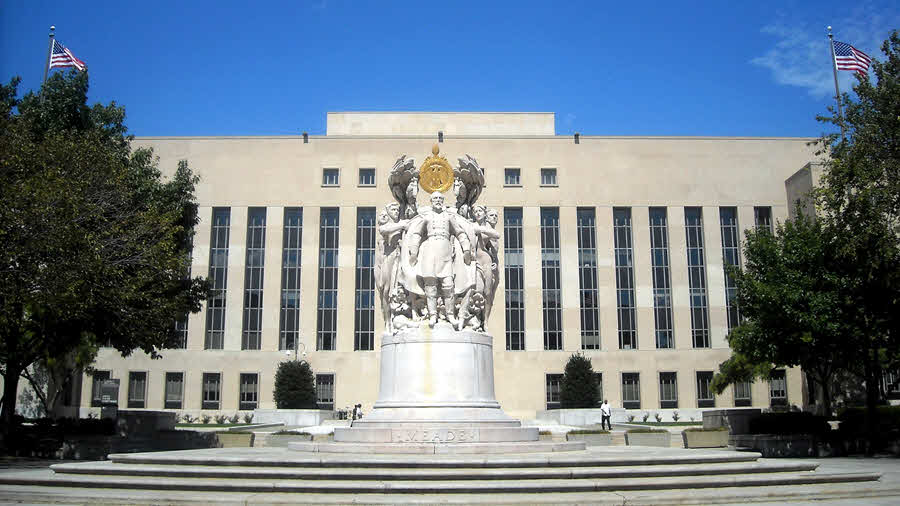Federal Court Upholds Most of FCC 'Net Dereg

The smarter way to stay on top of broadcasting and cable industry. Sign up below
You are now subscribed
Your newsletter sign-up was successful
In a victory for ISPs, a three-judge panel of the U.S. Court of Appeals for the D.C. Circuit has unanimously upheld most of the Republican-led FCC's deregulation of internet access in the 2017 Restoring Internet Freedom (RIF) order.
The court said the FCC was reasonable in reclassifying internet access as a Title I service. But it did not uphold the FCC's preemption of state efforts to regulate the internet following that deregulatory decision, saying that was beyond its authority.
That came in a decision handed down Tuesday, Oct. 1, well over a year since the deregulatory RIF order took effect. It was also a big court victory for the FCC following a big defeat on the media ownership front last week in another court.
"We uphold the 2018 Order, with two exceptions," said the court. "First, the Court concludes that the Commission has not shown legal authority to issue its Preemption Directive, which would have barred states from imposing any rule or requirement that the Commission “repealed or decided to refrain from imposing” in the Order or that is “more stringent” than the Order. 2018 Order. The Court accordingly vacates that portion of the Order. Second, we remand the Order to the agency on three discrete issues: (1) The Order failed to examine the implications of its decisions for public safety; (2) the Order does not sufficiently explain what reclassification will mean for regulation of pole attachments; and (3) the agency did not adequately address Petitioners’ concerns about the effects of broadband reclassification on the Lifeline Program.
But the court, rather than vacate the order, remanded those parts back, saying the FCC may well be able to justify them as well.
That RIF order classified ISPs, as Title I information services rather than Title II telecom services subject to some common carrier regs. RIF also eliminated rules against blocking, throttling and paid prioritization and a general conduct standard that allowed the FCC to regulate other internet access practices not prohibited expressly by the rules.
The court concluded that "Applying these principles here, we hold that classifying broadband Internet access as an “information service” based on the functionalities of DNS and caching is “‘a reasonable policy choice for the [Commission] to make."
The smarter way to stay on top of broadcasting and cable industry. Sign up below
So, ISPs can continue to experiment with business models so long as they do not raise anti-competitive flags at Justice or the Federal Trade Commission, and so long as they inform their customers of what they are doing so they don't run afoul of FCC transparency requirements and the FTC's rules against false and deceptive conduct.
Most ISPS have pledged no blocking or throttling, a pledge that can be enforced by the FTC through law suits/settlements. Paid prioritization is a grayer area, with ISPs often pledging not to engage in "anticompetitive" prioritization.
Oral argument in the suit had been held Feb. 1 before judges Judges Robert Wilkins, Patricia Millett and Stephen Williams, with Judge Millett presiding and court watchers had been looking for the decision for months, though the court was under no deadline to decide.
ISPs like Comcast and AT&T had pushed for and backed the FCC's dereg of wired and wireless service, but this is likely not the last legal word on just what the FCC's regulatory authority over the internet is.
There will be a renewed push for Congress to end the court fights stretching back over a decade.
ISPs have said they support a law that would restore the rules, though not the associated "general conduct standard" that they say could chill speech or lead to after-the-fact rate regulation, and definitely not under Title II common carrier authority.
Related: House Votes to Re-regulate Internet Access
Tuesday's highly anticipated court decision, the latest in a years-long legal battle with more twists and turns than an Agatha Christie plot, can be appealed to the full court or directly to the Supreme Court.
That 2015 move under FCC chair Tom Wheeler had been in response to the same court's overturning of previous, compromise, net neutrality rules.
The FCC's Republican majority led by chairman Ajit Pai had reversed that 2015 Open Internet order, arguing its common carrier-law underpinnings were overregulatory and had inhibited investment and innovation, something RIF critics said was simply not true.
Mozilla, INCOMPAS--representing competitive carriers and computer companies--and a host of others, from activist groups to state governments, had challenged the FCC's decision in the RIF order.
On a separate track, legislators on both sides of the aisle have been talking together about finding common ground and passing compromise legislation that could restore those rules, just not under the Title II common carrier framework on which the 2015 Open Internet order rules were adopted.
ISPs have signaled they can live with such compromise legislation, though on the paid prioritization issue they would prefer the language bar "anticompetitive" paid prioritization to leave room for business models that help them set their services apart from the competition rather than effectively foreclose it, and to allow for life-saving prioritization--remote health monitoring over cat videos, on which there is general agreement.
The court victory obviously strengthens ISPs' hand if they are still supportive of compromise legislation to end the legal ping-pong.
Contributing editor John Eggerton has been an editor and/or writer on media regulation, legislation and policy for over four decades, including covering the FCC, FTC, Congress, the major media trade associations, and the federal courts. In addition to Multichannel News and Broadcasting + Cable, his work has appeared in Radio World, TV Technology, TV Fax, This Week in Consumer Electronics, Variety and the Encyclopedia Britannica.

